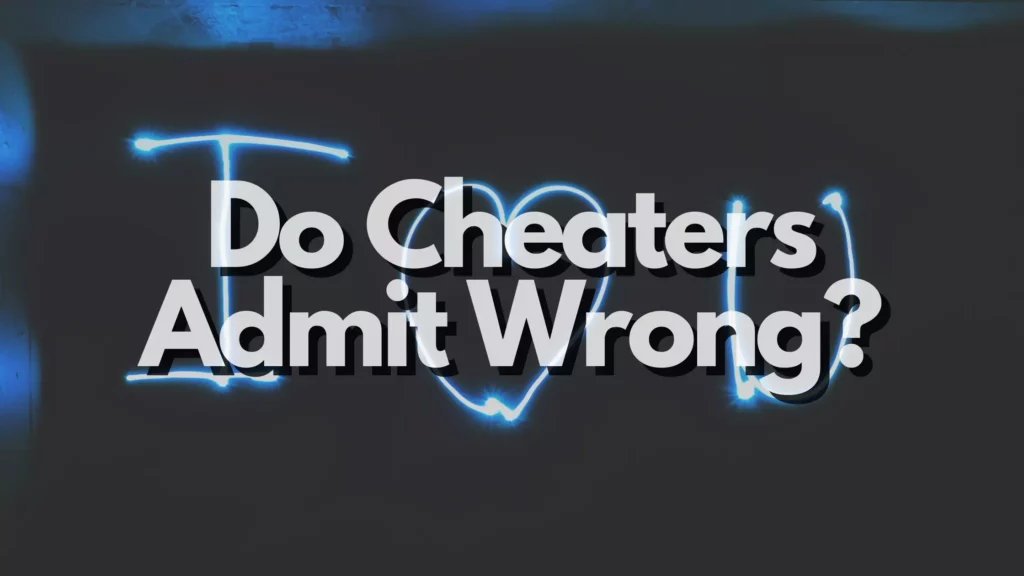It is possible for cheaters to admit that they were wrong and to take responsibility for their actions, but it is not a guarantee. The willingness of cheaters to admit wrong and to take responsibility for their actions can depend on a variety of factors, including their level of remorse or guilt, their motivation for cheating, and their willingness to address any underlying issues that may have contributed to the cheating.
Some cheaters may be willing to admit that they were wrong and to take responsibility for their actions if they are truly remorseful and understand the harm that their behavior caused. They may be willing to work on the relationship and to make amends in order to rebuild trust and repair the damage that was done.
Other cheaters may be more resistant to admitting that they were wrong and may attempt to justify or minimize their behavior. They may be more focused on avoiding the negative consequences of their actions and may not fully understand the impact of their behavior on their partner.
Confronting a Cheater
There are a variety of things that cheaters may say when they are confronted, and the specific words and phrases that they use can depend on a variety of factors, including their level of remorse or guilt, their motivation for cheating, and their willingness to take responsibility for their actions.
Some common things that cheaters may say when confronted include:
- “It was a mistake.”
- “I was just feeling unhappy/unfulfilled in the relationship.”
- “It was a one-time thing.”
- “I was under a lot of stress/pressure and I wasn’t thinking clearly.”
- “I was drunk/high and it just happened.”
- “I don’t know what came over me.”
It is important to keep in mind that these phrases and excuses may be used by cheaters in an attempt to minimize or justify their behavior and to avoid taking responsibility for their actions. It is also important to note that these phrases do not necessarily reflect the true motivations or feelings of the cheater and may not be an accurate representation of their behavior.
Conclusion
If you are in a relationship and have been confronted with infidelity, it is important to remember that it is not uncommon for cheaters to use excuses or try to minimize their behavior.
Ultimately, the willingness of cheaters to admit wrong and to take responsibility for their actions will depend on the individual circumstances and the underlying issues that may have contributed to the cheating. It is important for cheaters to be honest and transparent with their partner and to be willing to work on the relationship in order to rebuild trust and repair the damage that was done.
It is important to take the time to process your feelings and to consider what is best for you and your well-being. If you are unsure about how to move forward, it may be helpful to seek the support of a therapist or a trusted friend or family member.

